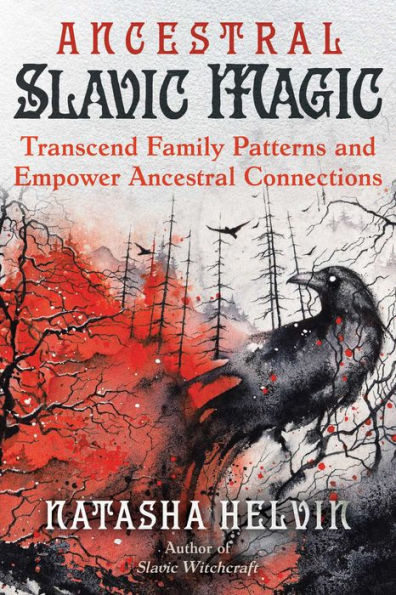To begin with, there is a great deal of information packed into the pages of Helvin’s book and much of it was completely new to me, so forgive me if this review just passes quickly over very large and interesting areas of discussion.
Helvin is both an initiate into Haitian Vodou and a Russian folk religion practitioner and she draws extensively from both traditions in the book, although she is careful to not mix them together, drawing parallels where it seems warranted (and occasionally referring to other traditions her readers will be more familiar with as well – Greek, Roman, Indian) but mainly dealing with the two traditions separately. Key similarities that she describes are the strong role of ancestor veneration in the two traditions, the significant degree of hybridity and syncretism (in Russia with Orthodox Christianity, in Haiti with various African religions and Roman Catholicism), and folk magic.
The first half of the book, chapters 1-9, principally dealt with the ancestors in Slavic tradition, with two chapters ending the section on Vodou ideas of ancestors and magic (in Vodou, unlike Slavic tradition, ancestors are not necessarily blood relations). She discusses the different generations of Ancestors in depth, provides links to other systems of meaning (7 planets, numerological significance, for example), and outlines rituals of Ancestor veneration. The second section, chapters 10-20, is short chapters dealing with particular folklore ideas and practices, principally Slavic, in greater or lesser detail. I found that there was a great deal of interesting new information in the first section, the history of Russia, the hybrid tradition of Orthodox folk magic, and the Pagan traditions surviving to the present. The second section was a mixed bag with the general discussion of magic at the crossroads and bridges, the magical properties of water, and the discussion of words of power, less interesting to me than the thorough discussion of the Slavic wedding as a rite of passage and burial and funeral rites in Russian folk magic, because that material was not as new to me – it was solid, well presented material, however.
By understanding ourselves as the currently living expression of our clan, the ancestors as the powers that gave us life (not only in the obvious biological sense of the chain of births leading to our own but also in the skills and aptitudes passed along through the line of descent), we can find a greater connection and meaning in our lives. By connecting with and calling upon our ancestors we can give our lives more force and purpose and find ourselves as part of a greater whole, our clan.
Helvin writes like a Russian – direct, forceful, sometimes abrasive. She cites her sources in general but makes it clear that she is coming from oral tradition and also drawing her own conclusions and making her own path from what she has been taught and experienced. This book will reward several readings, because there is a lot in here, and I would strongly encourage people to do the work – call the Ancestors, do the rituals and explore your own family traditions.
~ review by Samuel Wagar
Author: Natasha Helvin
Destiny Books, 2024
281 pg. Paperback £16 / $27 Can / $20 US

